Physical Address
304 North Cardinal St.
Dorchester Center, MA 02124
Physical Address
304 North Cardinal St.
Dorchester Center, MA 02124
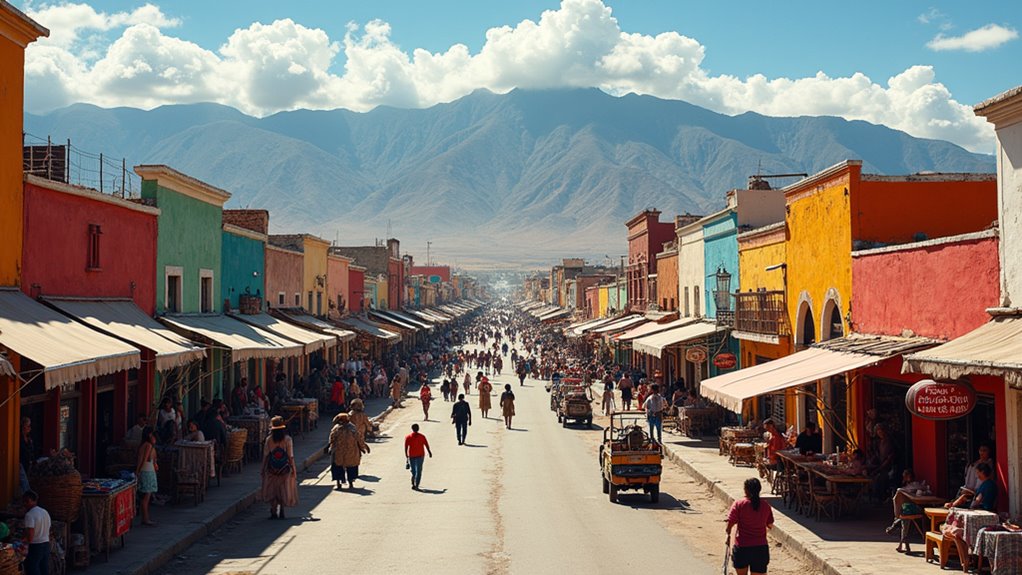
Horrific homicide rates and cartel-related violence make Juárez, Mexico, one of the world's most dangerous border towns, but understanding the risks can help travelers stay safe.
You may be surprised to learn that Juárez, Mexico, has a staggering homicide rate of nearly 68 per 100,000 people – one of the highest in the world. This sobering statistic highlights the significant safety concerns travelers must consider when visiting this border town. While the city’s dangerous reputation is well-known, understanding the common crime types and practical mitigation strategies can help you make an informed decision about your travel plans.
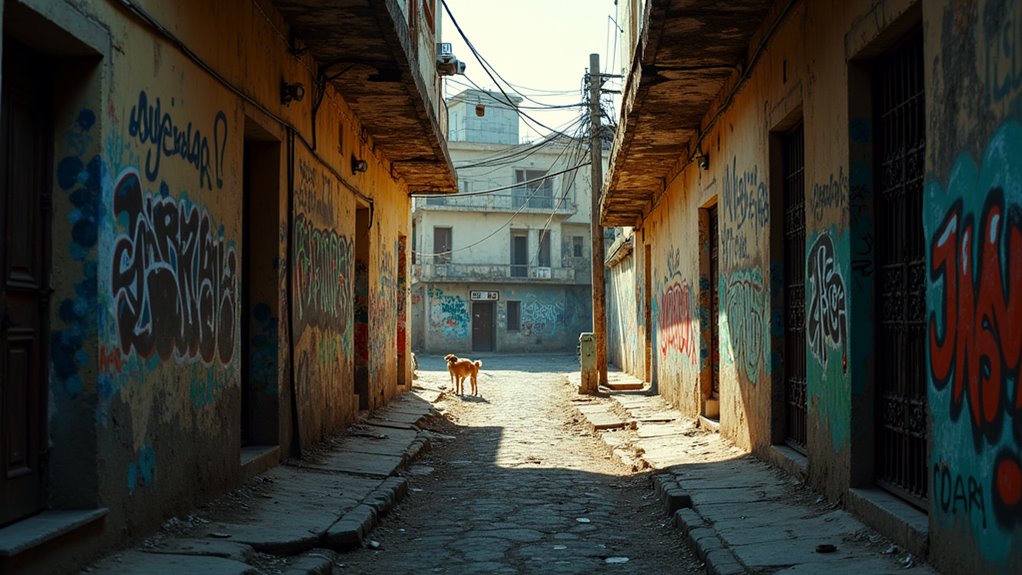
Although Ciudad Juárez reports a high murder rate of 67.69 per 100,000 people, it’s important to take into account Mexico’s overall homicide rate of 24.9 per 100,000 as well. Mexico’s high homicide rate While this is noticeably higher than the global average, homicide rates in Mexico have shown a gradual decrease since a peak in 2020. Ciudad Juárez isn’t alone in its crime challenges, as other Mexican cities like Zacatecas and Tijuana also grapple with high crime indices and property crime concerns. Juárez appears consistently on lists of deadliest cities in the country, requiring travelers to exercise heightened caution. Understanding the broader regional trends and specific crime types, such as femicides and organized crime impacts, is essential when evaluating the safety landscape in Juárez.
According to recent rankings, Juárez scores a concerning 29/100 for safety perception, ranking among the least safe cities globally. This contrasts sharply with safer Mexican cities like San Pedro Garza García (10.4% feel unsafe) and Benito Juárez (CDMX, ~20% insecurity). Theft and drug-related issues are significant concerns in Juárez, with 38% of residents and visitors feeling completely safe during the day and only 27% feeling secure at night.
Public surveys indicate widespread urban safety concerns, with 61.7% of Mexican urban residents reporting fears. Travel advisories highlight Juárez’s widespread violent crime, recommending heightened vigilance compared to tourist-friendly areas with lower incident rates. Safety for travelers varies significantly across Mexico, with border towns generally requiring more caution than established resort destinations.
The city’s crime profile matches broader patterns, rather than localized cartel clashes, making it a higher-risk urban area on par with Tampico and La Paz.
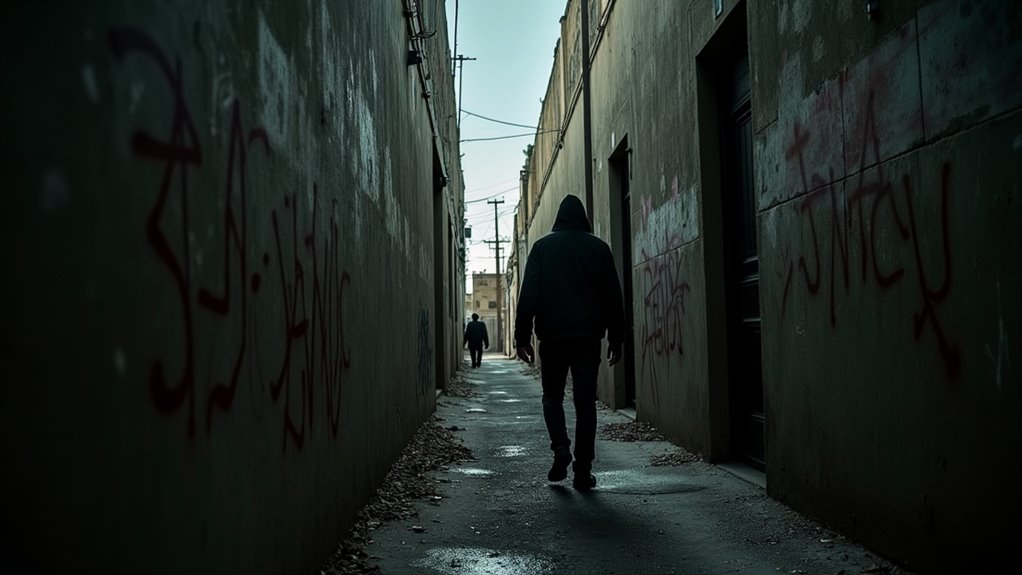
Ciudad Juárez’s crime profile extends beyond the widespread safety concerns outlined previously.
Domestic violence accounts for nearly a quarter of all documented crimes, while intentional homicides, kidnappings, extortions, and car robberies continue to plague the region. Cartels and drug trafficking contribute to the high levels of violence. Annual nationwide homicides have exceeded 30,000 deaths since 2018, with Chihuahua state, home to Juárez, historically high-risk.
Cartel-related violence, drug trafficking, and weapon trafficking drive much of the criminal activity, which is often underreported due to corruption.
Property crimes like vehicle theft, burglaries, and robberies remain prevalent, while domestic and gender-based violence persist despite underreporting and support program shortages. Visitors crossing the border from Texas should exercise heightened caution, especially in areas known for criminal activity.
Ultimately, traversing the travel landscape of Ciudad Juárez requires careful consideration of the current security climate. Regional advisories warn of widespread violent crime, border dangers, and limited emergency response capabilities.
Key transportation risks include:
High crime and violence in regions like Colima, Guerrero, Michoacán, Sinaloa, Tamaulipas, and Zacatecas can also impact travel to Juarez.
To mitigate these threats, it’s essential to plan routes exclusively on toll roads, maintain communication with trusted contacts, and be prepared to surrender valuables if confronted.
Awareness of local conditions and transport alternatives can further enhance your safety.
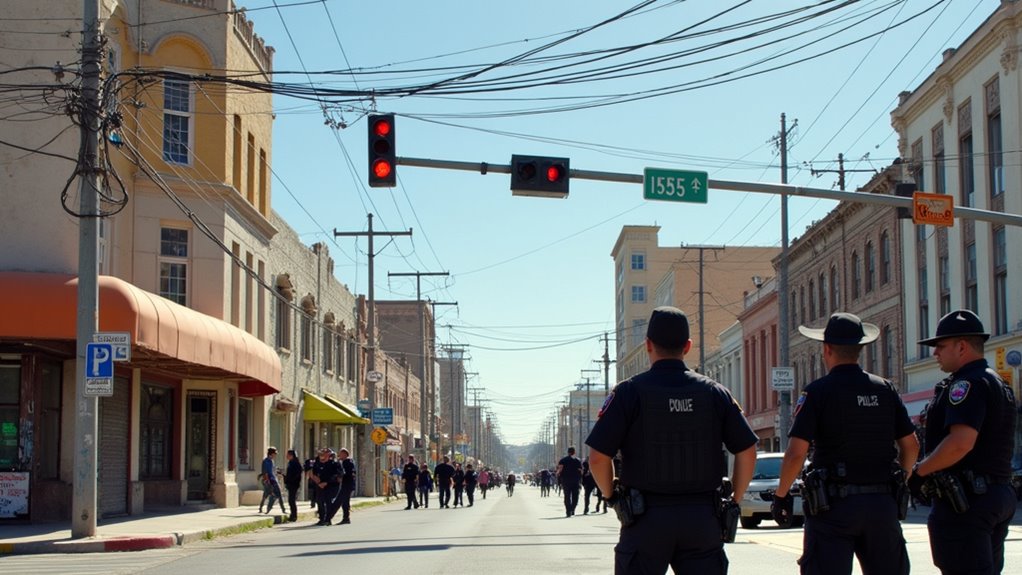
Despite the challenges facing law enforcement in Juarez, the city has taken steps to address its security infrastructure.
Prosecutors grapple with high caseloads and limited resources, while organized crime corrupts local police. To combat this, Juarez has deployed the military and increased surveillance, though coordination between agencies remains fragmented. Victims and their families experience stigmatization and neglect from authorities.
Crime data also faces reliability issues, with underreporting and classification challenges. The judicial system suffers from case backlogs and witness protection gaps.
While Juarez has implemented forensic reforms, significant hurdles remain in ensuring the city’s safety and security. Visitors should exercise caution and stay informed of the latest developments.
When visiting Juarez, Mexico, it’s crucial to implement proactive safety measures to mitigate risks.
Avoid travel at night, stick to daylight hours, and use official transportation services like licensed taxis or pre-booked private transfers. If possible, opt for flights instead of land border crossings, and prioritize toll roads over secondary routes.
Thoroughly research neighborhoods to identify safe zones before arrival. Choose secure lodging with 24/7 security, upper-level rooms, and in-room safes. Travelers should be aware of the high levels of violence and crime in Juarez due to cartel activity.
Maintain situational awareness, conceal valuables, travel in groups, and carry minimal cash. Regularly monitor travel advisories, establish check-in routines, and use encrypted messaging apps for sensitive communications.
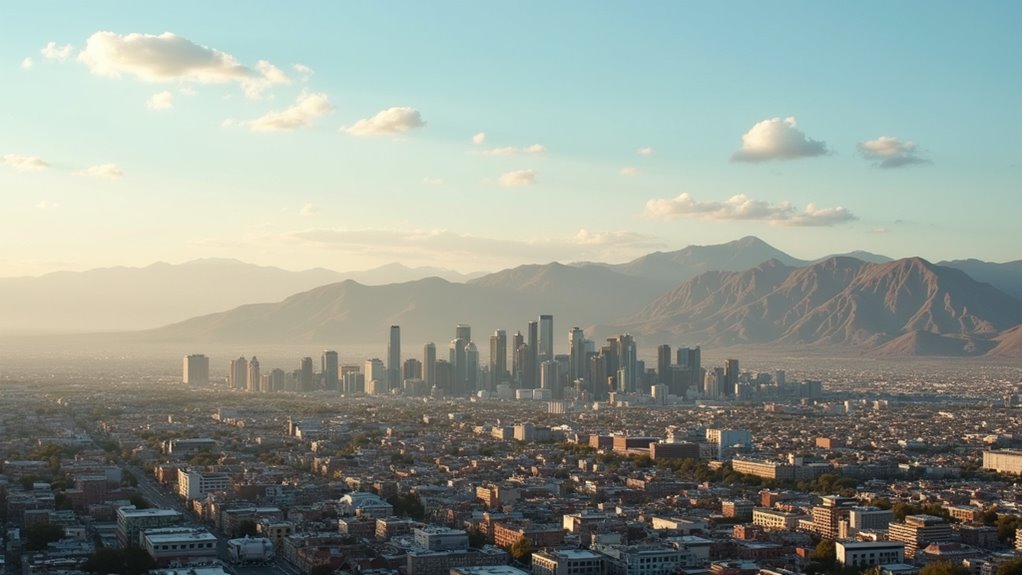
Given Ciudad Juárez’s alarming crime statistics, high insecurity levels, and ongoing challenges with cartel presence, visitors must exercise extreme caution when considering travel to the city. While efforts are underway to improve safety, the realities on the ground remain intimidating. The ENSU survey shows 20% of residents in Benito Juárez, Mexico City report feelings of insecurity. Prudent travelers should closely monitor advisories, avoid unnecessary risk, and prioritize their personal security. Until sustainable solutions emerge, Ciudad Juárez poses significant dangers that outweigh most potential benefits for visitors. Individuals must carefully weigh the risks and make an informed decision based on their tolerance for danger. Ultimately, the city’s safety outlook remains concerning, requiring heightened vigilance from all who choose to venture there.
While Juárez may not be the safest border town, you can still explore it with caution. Just remember, it’s like maneuvering through a minefield – one wrong step, and you could find yourself in serious trouble. But if you stay alert, stick to the toll roads, and avoid venturing out at night, you’ll likely have a smooth and uneventful trip. The city’s high homicide rate is no joke, so take it seriously and you’ll be just fine.